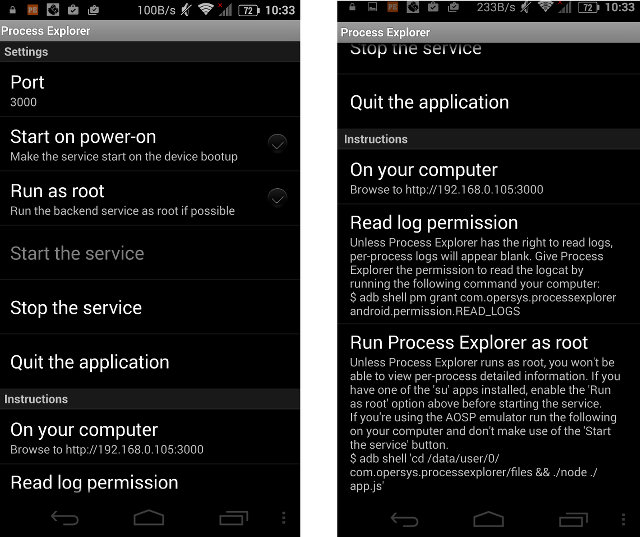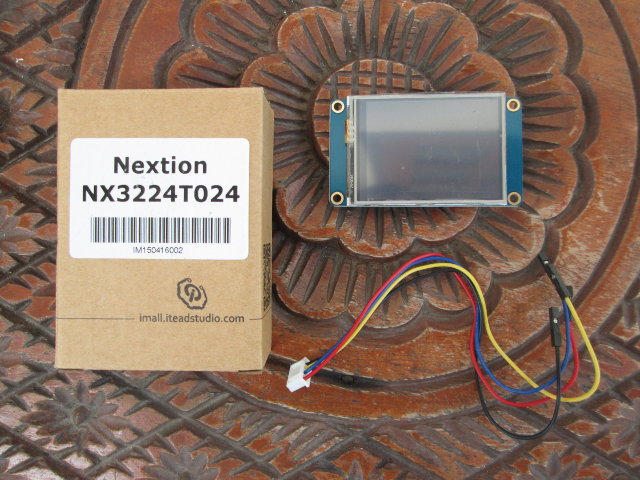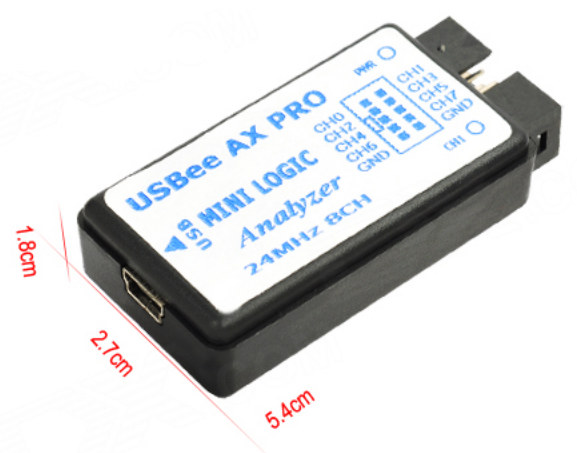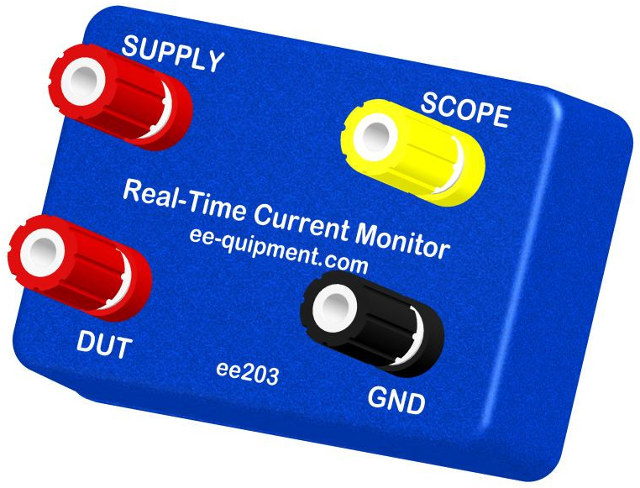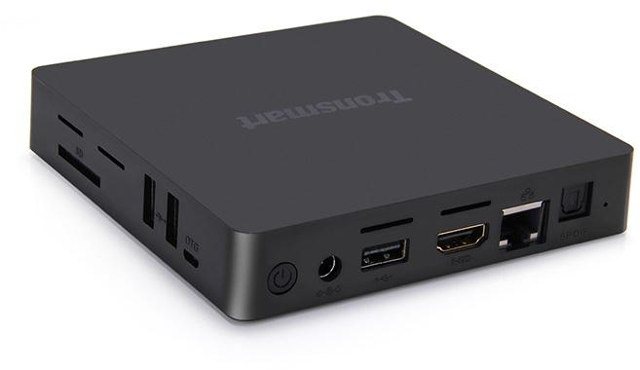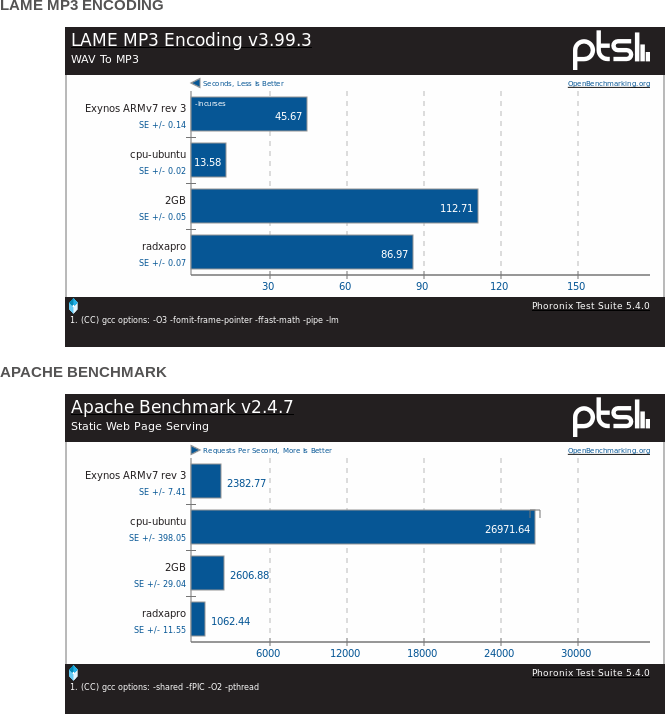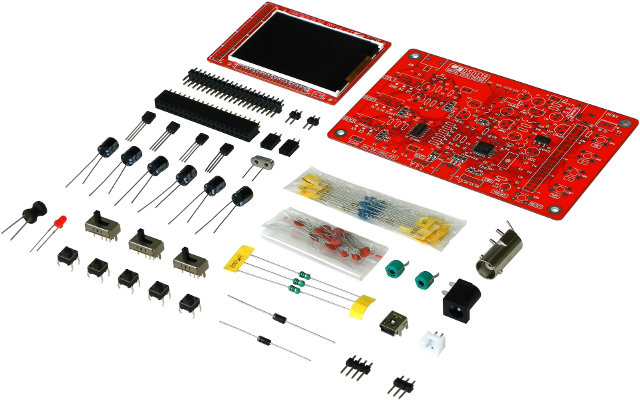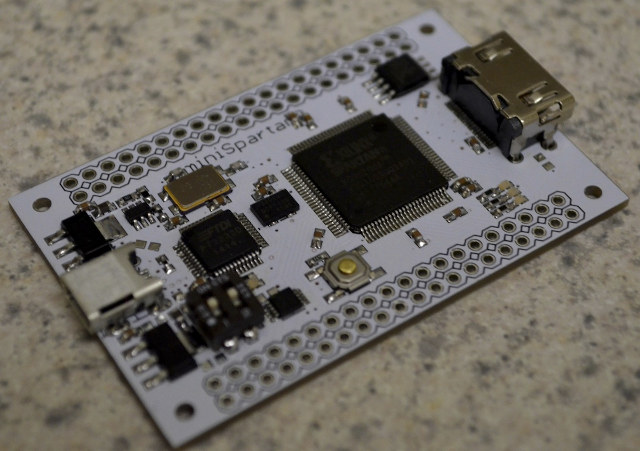Opersys is an Android and Embedded Linux company providing both development and training services, and they regularly attend conferences and release their training materials. The company has also developed a few Android apps to export the file system, the process list and info, and interaction between apps and Android system services exposed via Binder to your computer’s web browser. I found the most interesting app to be Process Explorer, so I gave it a try on Iocean M6752 smartphone. The application requires very little permissions to install, and it’s very simple to use. Simply tap on Start the service, and the app will provide the URL to browse the processes on your computer, in my case http://192.168.0.105:3000. The output is pretty useful, as you get much more information than you could get on your smartphone or tablet screen with CPU and memory usage, running time, logcat, etc… If you click […]
How to Use Nextion Serial Touchscreen Displays – Part 1: Standalone Mode
Itead Studio launched an Indiegogo campaign earlier this year for their Nextion TFT displays that can be connected to external board such as Arduino or Raspberry Pi via the serial interface, or even a standard computer provided you have a USB to TTL debug board. The campaign was successful with over 1,700 backers, and the company recently sent me two samples for review: a 2.4″ display and a 5″ display. In this post, I’ll look at the boards, and make a small standalone demo with Nextion Editor in Windows. Nextion NX3224T024 2.4″ Display The first item is a 2.4″ TFT display called NX3224T024_011N (non-touch) or NX3224T024_011R (Resistive touch) with 65536 color, 320×240 pixel resolution, LED backlight and up to 200nit brightness. It ships with a cable for the serial connection (5V, Tx, Rx, and GND). The back of the display features the serial connector, a micro SD used to load the […]
USB123 USBee AX PRO is a $10 USB Logic Analyzer Clone Compatible with Sigrok
A few months ago, I wrote about low cost logic analyzers selling for $75 and up, but yesterday, I stumbled upon an even cheaper, and admittedly lower end, logic analyzer called USB123 USBee AX PRO, allegedly a clone of the original USBee AX PRO minus the analog inputs, that sells for $9.99 on Dealextreme. [Update: It can also be bought for $5.60 on Aliexpress including shipping to most countries] USBee AX PRO specifications: Sampling rate – 24Msps Sample rate – 24MHz @ 8 channels Input voltage range: 0~5V Digital channel: 8 Low input voltage: < 0.8V; High input voltage: >1.4V Supported Protocols – SPI, IIC, UART, SMBus, I2S, CAN, Parallel, Custom, Search, Async, 1-Wite, PS/2 Dimensions – 5.4 cm x 2.7 cm x 1.8 cm Weight – 60 grams The tool ships with 10 Dupont cables and a USB cable to transfer data to your PC. DealExtreme also provides CDROM […]
ee203 Real-time Current Monitor Supports 1 μA to 1A Range, Outputs Data to Oscilloscope
Measuring current can be tricky, as I found out during my various attempts at measuring power consumption of TV boxes, as when the current gets too high, your measurement setup impedance may be too high (cables or multimeter), and the voltage delivered to the device under test too low for it too keep running, while accuracy may be an issue while measuring very low currents. EE Equipment ee203 Current Monitor solves some of these issues for people working on low power embedded systems as it can measure currents between 1 μA and 1A, and even output data to an oscilloscope to see real-time power consumption of the devices. Key features for ee203 current monitor: 6 Decades of Current Range: 1 μA – 1 A (2A fuse) No Range-Switching Interruptions or Delays Wide System Voltage Range 1.5V – 5.5V (12V Max) USB interface for calibration, control, and data logging View Current […]
Tronsmart Orion R68 RK3368 TV Box Firmware and Android SDK Released
Tronsmart Orion R68 is an Android 5.1 TV box powered by Rockchip RK3368 octa core ARM Cortex A53 processor with 1 or 2GB RAM, and 8 or 16GB eMMC flash depending on model, most probably based on Beelink i68 hardware. The goods news is that the company has now released the stock firmware as well as the Android SDK for the device. The firmware is version 100L1100_0720, dated July 20th, with the following changelog: OTA firmware updates support USB audio support Remote control function via smartphone In case you need to flash the firmware manually, you’ll need a Windows PC, a toothpick and a micro USB cable, and download Updating_instruction&Drivers&Flashing_Tools.zip which contains instructions, and the latest version of two Windows based utilities: DriverAssitant v4.3 – Program used to install the USB drivers for your version of Windows. FactoryTool v1.39 – The tool that does the flashing. If OTA is working, […]
How to Compare Systems Benchmarked with Phoronix Test Suite
Phoronix Test Suite is an open source benchmark for Linux, Solaris, Mac OS X, Windows & BSD operating systems, but in practice it’s mostly used for Linux OS since other benchmarks solutions are available in Windows, while choices are more limited in Linux. There are many benchmarks to choose from, and you can select the ones you want by running a “batch-benchmarks” from the command line. I’ve done so when testing performance of ODROID-XU3 Lite and Cubieboard4 boards in Ubuntu, and once the tests are completed, the results will be automatically uploaded to openbenchmarking.org. From there, it’s quite easy to compare recent results as you’ll get an “add to comparison” option on the site, and you can pick a few results. You can select a few systems, and then click on “Compare Results” to get a side-by-side comparison. If you want to compare your system to an existing system, you […]
JYE Tech DSO138 is a $23 DIY Oscilloscope Kit
Back in 2012, I was pleasantly surprised when I discovered they made Digital Storage Oscilloscope (DSO) for less than $200, and today, you can find several oscilloscopes for less than $100, albeit with limited performance, such as DS201. But if you don’t need a high speed DSO and just want to have some fun, JYE Tech DSO138 is a single channel oscilloscope DIY kit that you need to assemble yourself, and sells for just $23 on Banggood, or about $30 on Aliexpress, or Ebay. DSO138 key specifications: MCU – STM32F103C8 ARM Cortex-M3 processor Display – 2.4 -inch color TFT display Analog bandwidth – 0 – 200KHz Sampling rate – 1Msps max Sensitivity – 10mV/Div – 5V/Div Sensitivity error – < 5% Vertical resolution – 12-bit Timebase – 10us/Div – 500s/Div Record length – 1024 points Input impedance : 1MΩ Maximum input voltage : 50Vpp (1:1 probe), 400Vpp (10:1 probe) Built-in […]
miniSpartan3 is a $25 Xilinx Spartan 3A FPGA Board with HDMI Output
Last year, Scarab Hardware launched miniSpartan 6+, a low cost FPGA board featuring Xilinx Spartan6 LX9, on Kickstarter. Since the, they’ve made a third iteration of the board with either Spartan6 LX9 or LX25 and an extra HDMI port, and developed miniSpartan3, a smaller and cheaper FPGA board called miniSpartan3 powered by Xilinx Spartan 3A XC3A50 or XC3A200 FPGA. miniSpartan3 specifications: FPGA – Xilinx Spartan 3A XC3A50 (50K logic gates) or XC3A200 (200K logic gates) Storage – 4Mbit SPI Flash Video / Audio Output – HDMI USB – Micro USB OTG port Debugging – On-board USB JTAG programmer; on-board USB to Serial Interface I/Os via breadboard friendly through holes 4-channel ADC running at 200 KSPS with 8 bit resolution. 41 Digital I/O pins. Misc – 3 LEDs for debugging; 2 DIP switches. Dimensions – 6.35 x 4.06 cm They have not provided much details about development tools, but it’s quite […]


